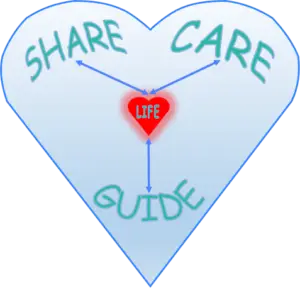
Hi! I’m Paul – a retired IT professional who cares about helping others through my life’s array of experiences. To learn more about me, read my bio. Thanks! Work Job
Job of a Lifetime – Is Work Awesome or Horrific?
In a recent Health post I touched on my work commute. That is one small piece of your work situation. I will discuss my situation later in this post. Before that I will go through topics like why we work and what a good versus bad job looks like. You know your own situation, but do you know or have what it takes to make a change? I will guide you on what worked for me.
What is work – why do people have jobs?
People define work as the activity that involves mental or physical effort done to achieve a purpose or result. As individuals we all have our own purpose and results we want to achieve when it comes to our jobs. If lucky enough, we will be able to retire one day to reap the benefits of our work efforts.
There are many reasons why people work. Some of these include:
- Money – Financial
- Social recognition and affirmation
- Utilizing skills and advance knowledge
- Job satisfaction
- Earn respect
See here for expansion on these.
This too shall pass
Most jobs have good and bad times. Even the most perfect one has difficulties you need to address at times. When I first became a manager, my mentor told me a phrase that I took to heart. Whenever I was struggling, he told me to think “this too shall pass.” He was right. Any struggle I was dealing with passed over time. As long as I focused on solutions, I was always able to move forward with any issue. Many believe the phrase originated in the 13th century. It means that everything is temporary and will come to an end at some point. With this said, there are exceptions which I will discuss in a bit.
What makes a good job – what makes it worth going to work every day?
Having a good job is subjective. For some people, based on experience, the same job which is good for one may be bad for the other. There are common themes that help make a job a good one. People consider work to be good when it pays well and lets a worker do what they’re good at. It also makes them the best in people’s eyes. If you have a good job, you sense that your colleagues appreciate you. Also, there is no feeling of discrimination, you feel your job is secure, and you have confidence that others have your back. Being on a team and how you experience stress also contribute to having a good job.
Find characteristics of a good job here.

What is a bad job?
A bad job is still subjective. You can sum it up as a bad one includes:
- Unfair treatment
- An unmanageable workload
- Unclear or lack of communication
- Little support from management
At the risk of sounding contradictory, the saying “this too shall pass” does not apply. This is when no matter what you do, the work doesn’t get better. You are in a situation of one problem after another and your workload keeps getting larger.
What to do if you hate work
If you are in a bad job, there are a few things you can do. The easiest is to jump ship. I would only consider this if all else fails or you do not care about the work you do. You owe it to yourself to take every chance to succeed. This is especially true if your job is in the career you want or at a company where you want to have a career.
Try to find something good in every situation. Not realistic, but it can be. Take a look at this article to enlighten you. It will remind you about building tolerance, commitment, and going above and beyond. It will also remind you to improve your own communication. Your career skills will benefit.
If All Else Fails
I do recognize that there are limits. If managers and teammates do not respond to your attempts to improve things, then it may be best to switch jobs. I am someone who over a 35-year career only had two jobs. And the reason for changing from one to another was to move up the ladder. I do appreciate that my situation was not like others and I was happy at both jobs. “This too shall pass” worked at both. I have been very lucky.
Reasons to change jobs
As indicated above, there are many reasons you may want to change jobs. Not all are bad or due to difficult circumstances. As a matter of fact, many people move around, some often, to better themselves or their life situation. A list of reasons for a new job include:
- Moving to a new city
- Looking to grow in your field
- Interested in a more challenging job
- Ready for a change in environment
- Changing careers
- Laid off, let go, or company failing
- Hoping to receive higher compensation
- Wanting to work with new management
- Major life changes
- Recruited with a better offer
View here for more information.
Reasons to stick it out
There are reasons to stay put and not change jobs even when all signs say you should. Some reasons include:
- Your efforts to make things better are working
- Afraid of starting over
- Getting too old
- Don’t know what you want to do
- You will lose your network
- Will not make any money
Leaving a job is not an easy thing to do. It is not for everyone. Some people are happy staying where they are even if it means being miserable. Leave the status quo. Remember the goal is for a long, happy, profitable career. Try to do what you can control and make that happen. It’s not easy!
Is Work-life Balance Real?
Is work-life balance achievable? Does it work? It is subjective. For some people it is great while others hate it. Whether it works or not also depends on the type of job you have. If you have an office job with limited face-to-face interaction with people or can do the work on a computer or phone, then it is great. Theoretically, you can work wherever you have access to a computer and phone. If you have a service type of job, then it is hard if not impossible to work from home. So, it is all relative. You have to look at everyone as individuals.
Issues with Work-life Balance
Concerns with work-life balance and working remotely have to do with trust. If a trusted employee starts work on time and puts in a focused full day, then it works. Companies see an increase in productivity in this case. Yet, if someone desires to misuse the privilege and neglect their responsibilities, it will not be effective. Managers need to control this. They must find new ways to balance the work and lives of employees. In the end, the job needs to get done. Whether that is in the office or at home, depends on the company and individual.

My Situation
If you have looked through this website, and in particular the About Paul page you know a little about my work history. Graduating from college I was able to find work in my field of study right away. I was lucky because even then I knew people from other graduating years who were either not working or had a job that had nothing to do with their studies.
I was in IT, application programming. Starting as a trainee I worked myself up to a project leader in my first job. After being in that position for a while, I wanted more. I wanted to manage. Taking a job in Manhattan, NY, I went from a 20-minute commute to a 2-hour commute, each way. Yes, a part-time job as a commuter. What was I thinking?!
Thinking about the items discussed in this article, I loved my job. There was no reason to leave the first job other than advancement. My family was growing and the financial burden increasing. I also wanted advancement and I was at the end of that road in the first job.

Pros and Cons to changing jobs
Challenges
My second job had advantages and challenges as does everything in life. Some of the challenges were:
- Long commute
- Away from home for a long period 5 days a week
- The commute had a lot of walking (not a challenge for some but was for me)
- Many trains and/or busses to take to get to the office
- Traveling through a dirty, homeless bound subway system
- At times looking over my shoulder from a safety perspective
- Feeling exhausted before my workday even began
- Had to do it all over again at the end of the day which was never 8-hours, always more
Benefits
You might say all the challenges were not worth the change. I would disagree. Benefits to the second job included:
- An increase in responsibilities
- Large increase in salary
- A terrific team to work with day-in and day-out
- Better benefits
- The potential for a pension
- Management that helped me grow
Changing jobs helped me in my career as well as grow as a person. I needed to make sure I made the best use of my time at home to make up for the extra time I was not home. A challenge in itself but doable.
My Guidance
As you can see from my situation, it was not an easy decision to give up what I had to move forward with my life and career. My situation got better with the adaptation of work-life balance. This allowed me to work from home a few days a week where I was actually more productive because I did not have to concern myself with the long commute. You need to look at your situation and weigh all your options. Your pros and cons. Discuss changes you want to make with family whether that is a spouse, parents, siblings or other. There is no shortage of advice out there. In the end, you need to do what is best for you and your family.
Please subscribe if you haven’t already. This will ensure that you get notified when new posts hit the site. Also, please check out my posts in other categories.

2 Responses
Good information to think about. Always good to weigh the pros and cons.
Thanks for your feedback Mary Anne. I appreciate it.